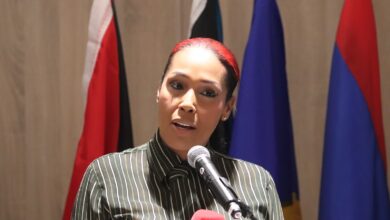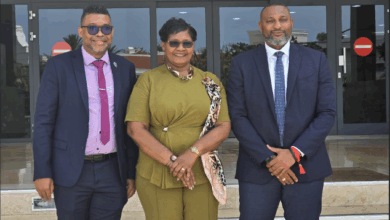(CARICOM Secretariat, Turkeyen, Greater Georgetown, Guyana) Today as we commemorate World AIDS Day and its significance we reflect on the underlying reason for this commemoration and our own roles in this reality.
But what is this reality or rather, our reality? Despite the optimism caused by recent statistics which suggests the global prevalence of the infection is stabilizing and there are localized reductions, the statistics still paint a grim figure.
Estimates from UNAIDS in 2007 indicate that each day 6800 persons become infected and over 5700 persons die from AIDS, mostly because of inadequate access to HIV prevention and treatment services and that “HIV remains the most serious of infectious disease challenges to public health”. Progress in halting the HIV pandemic is still falling far short of targets and we must change this reality.
This 20th World AIDS Day is therefore a time for reflection, but more importantly for introspection. Introspection on our own promises, individually and collectively, to provide strong leadership by implementing strategies to deal with prevention and treatment; to protect human rights by reducing stigma and discrimination; to promote research; among other promises, as indicated by our signatures to the 2001 UNGASS Declaration of Commitment.
The focus this year on Leadership in the context of stopping AIDS and keeping the promise could not be more appropriate and timely. It must force us as leaders to honour the 2006 UNGASS commitment of delivering universal access to HIV/AIDS prevention, care treatment and support services by 2010. In this regard my charge to the august gathering of Champions for Change in 2004, in St. Kitts and Nevis. We must provide and embrace:
• informed leadership, ensuring that decisions to respond effectively and efficiently to this epidemic are based on evidence;
• bold and decisive leadership, taking unconventional steps and making the necessary daring policies to fight the spread and mitigate the impact of HIV/AIDS;
• sensitive leadership, valuing development that is “people-centred” and empathising with the infected and affected; and last but not least
• visionary leadership that fosters a collective harmonized regional approach to prevention, care, treatment and support.
Designated an international best practice for its governance structure, the Pan Caribbean Partnership against HIV/AIDS (PANCAP) was conceptualized and established as a result of the visionary leadership of the Caribbean Community (CARICOM). But while we acknowledge the progress made by the PANCAP Partnership in its approximately six years of existence, we are reminded by the grim statistics that even more urgent action is needed and we as leaders must quicken the pace of our actions.
We committed to universal access to prevent, care and treatment by 2010. And we must honour this commitment. So let us, in our collective and individual introspection on this 20th occasion of the observance of World AIDS Day, pledge to overcome the barriers, real and perceived, to meeting this commitment. Let us with energy and dedication renew our commitment and strategies to reverse the spread of HIV and AIDS. Let us ensure that in so doing we leave Universal access as a legacy to our Pan Caribbean Community. Let us truly help to achieve a Community for All.





